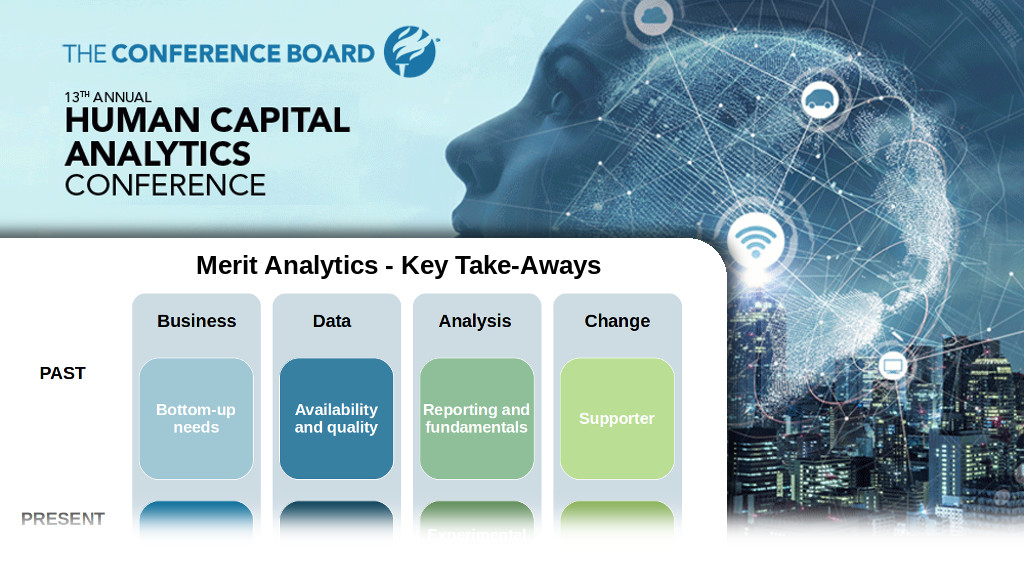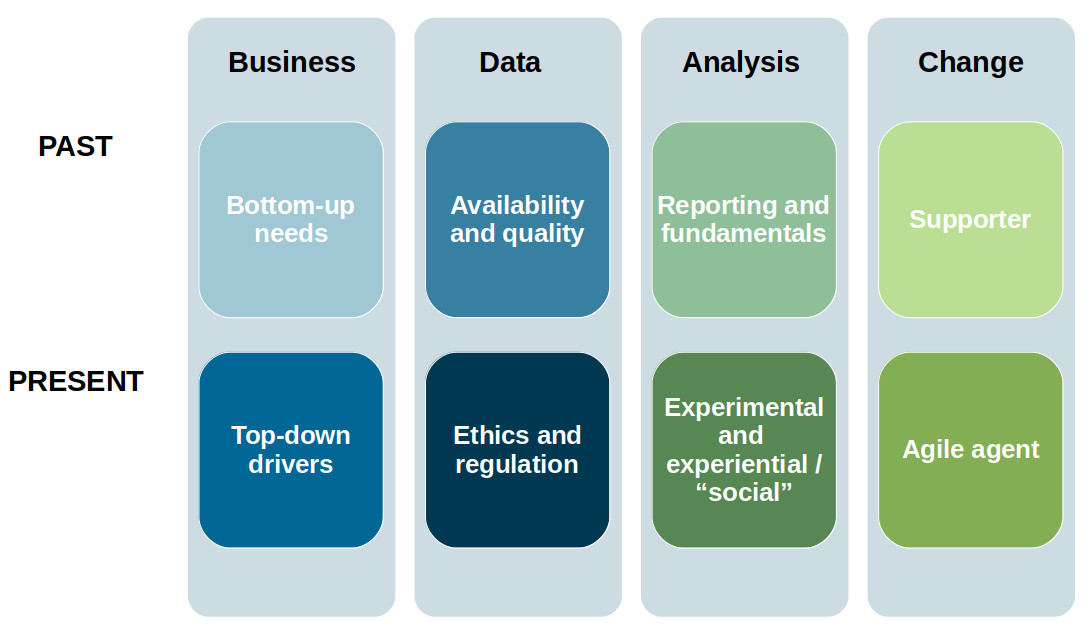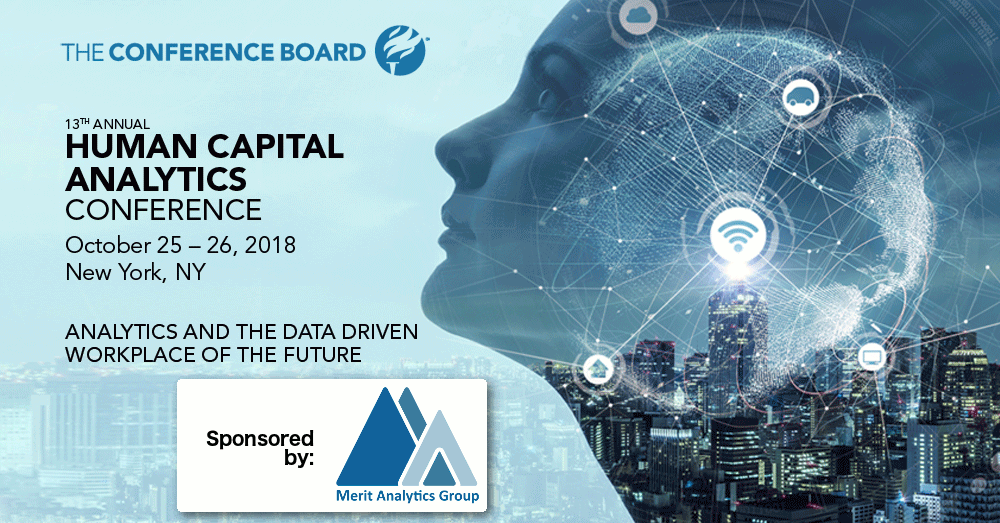RECENT POSTS
-
Pay Equity Disclosure is Just the Beginning
 06/06/2023
06/06/2023
-
Why Performance Reviews Matter for Pay Equity
 04/10/2023
04/10/2023
-
Risk-Based Workforce Planning
 06/17/2020
06/17/2020
-
How do we really know who feels excluded at work?
 09/30/2019
09/30/2019
-
Understanding Today’s Talent Landscape to Drive Diversity and Inclusion
 06/28/2019
06/28/2019
-
How happy are you with your workforce analytics technology?
 09/25/2018
09/25/2018
-
The four pillars of analytics success for the HR business partner
 08/08/2018
08/08/2018
-
Is there room for more diversity on your workforce analytics team?
 07/10/2018
07/10/2018
-
How Unique Is Your Job Title?
 03/27/2018
03/27/2018
-
What's More Important: Performance Management or Workforce Planning?
 02/27/2018
02/27/2018
-
Going Where the Data Leads: Four Questions that You Need to Ask
 01/09/2018
01/09/2018
-
Workforce Analytics: Separating Hype from Substance
 12/19/2017
12/19/2017
-
Pacing Workforce Analytics to Win
 11/28/2017
11/28/2017
-
Selling Workforce Analytics: What's it Worth?
 11/01/2017
11/01/2017

Key Take-Aways from The Conference
Board's
13th Annual Human Capital Analytics Conference
We were so excited to have had the opportunity to sponsor The Conference Board’s 13th Annual Human Capital Analytics Conference at the end of October. We have always appreciated a “baker’s dozen”, so what better year to support this great event than for its thirteenth—not to mention the stellar line-up of speakers from premier corporations, academia and consulting.
For those who know the history of the baker’s dozen, you are already aware of its mathematical underpinnings! For those who don’t, you can find an entertaining rendition at Food: Fact or Fiction? Season 2, Episode 10, "Eat Your Words"
While we were thrilled to see the large contingent attending the event, we know that many were not able to participate, so we wanted to take this opportunity to share some of our key learnings. With such content-rich sessions, our apologies in advance for this high-level summary. That said, hopefully some of the viewpoints captured here might resonate with, or be of interest to, you.
When reflecting on our two days at the conference, some themes stood out to us, and they centered on the evolution in how we view:
- The presenting business challenge,
- The data that we leverage,
- The types of analysis we conduct, and
- The change that we hope to enable or achieve.
The table below summarizes a few of our key take-aways.

If you were at the conference, please feel free to add your thoughts to this discussion. If you didn’t have a chance to attend but would like to extend the dialogue, please do. It is by sharing our views as a community that we all learn and grow stronger together. Happy analyzing!

